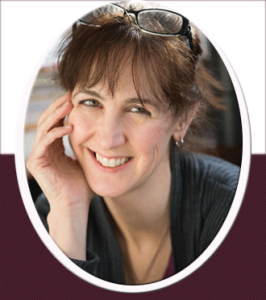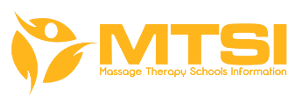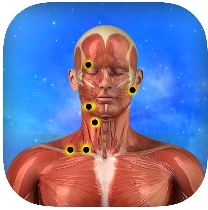
I am a solo practitioner working out of my office at Affinity Massage Studio in Cincinnati, OH. 90% of my practice is Ashiatsu Deepfeet Bar Therapy® (and am the company’s Senior Training Instructor for the modality.) I am also certified in pregnancy massage, cupping and Bamboo-fusion. Most clients need relief from stress or muscular strain. Some of my clients are teenagers, but most of them are in their 30’s – 50’s with professions ranging from doctors and lawyers to entrepreneurs and teachers.
2. Tell us why you chose to go into massage and at what point in your life did you decide to do so? What were you doing at the time? Where did you first hear about the massage career? What factors influenced your decision? What were you looking to get out of this decision?
While working as a restaurant manager in the 90’s, I began to explore options for a Master’s degree. Although I wanted to help people, I didn’t have anything narrowed down. My husband gave me 2 gift certificates for massage that year for Christmas.
I totally hated the first one – it was way too deep- and I would have never gotten another massage had I not had another GC. Craniosacral was my choice for my 2nd massage, and with that I was addicted.
After asking the therapist all about the school she went to, I promptly went to the library started researching (no Google back then). As it was a major financial commitment and we had 2 children to support, it took me about a year to get started with the program.
3. What were some of your questions and concerns before further pursuing your massage therapy goals? Talk about concerns with school and the profession itself.
Was it something I could do mentally? I had never been a touchy-feely person and was probably most concerned about that. As I had a BA, I wasn’t really concerned about the studying part, but I quickly discovered that anatomy and physiology were a real struggle.
4. What is your specialty and what are the top three contributing factors to your success today?
Ashiatsu Deepfeet Bar Therapy® is my specialty-the original source of barefoot massage using overhead bars for support in the US. 3 contributing factors to my success are:
- I wanted to do this massage well and worked really hard to be good at it, asking for feedback and responding to it. Using your feet for work requires you to really pay attention to your table etiquette, the pressure and working intuitively.
- One of the top responses I get from clients is that I pay attention to what they say and follow through with that during my massage. Another commonality mentioned by clients is how friendly I am and how comfortably I greet them when they first meet me.
- Developing a relationship with your clients is integral – remembering what their dog’s name is, asking about their ailing parents, etc.
5. What do you like about your specialty? What do you like about what you do in general as a career? Why?
Ashiatsu is awesome because:
- It keeps me physically moving with little strain on my body and helps keep me in shape. It’s fun and like a dance.
- Pressure applied with the feet is more comfortable than deep tissue massage by hand as the surface is so much broader.
- Clients report less soreness and longer lasting results than with traditional deep tissue massage.
6. What do you not like about what you do? Why?
I would say really that the only thing I don’t like is that if you don’t work, you don’t get paid. As an entrepreneur, managing the business side of things can be tricky if you’re not comfortable with that.
7. If there were three things you could change about your work or the industry as a whole what would they be? Why would you change them? What would you change them to?
- Well, I got one of “those” calls the other day: “Is this the Asian massage parlor?” (What?) “What do you massage on the front of the body?” That still flabbergasts me. Education is the only way to fix that.
- It would be nice if insurance would pay for massage when performed outside of a chiropractor or doctor’s office.
- And frankly, one of the biggest things I would change is the way massage schools advertise, trying to get in any student with a pulse even if they’re not well suited.
8. How long do you plan to practice and what do you plan to do after?
As 7 of my 8 children still live at home and my husband and I are both self employed, I have no intentions of quitting any time soon. I love how I can make people feel better; even on the days when I don’t feel like going to work, I always emotionally feel better afterwards.
I will continue to explore my part time work of photography, and my husband and I have additional business ventures we’re working on.
9. Do you currently have another job or business whether full time or part time? Tell us a bit more about it and how you are able to juggle that with your massage career?
When I got licensed in January of 1999, I still worked just one day a week as a restaurant manager (they were desperate to hold on to me!) but quit that maybe in May of that year. Since then, I have done massage but have supplemented it by working to become an authorized instructor for Deepfeet Bar Therapy, which morphed into becoming the Senior Training Instructor.
I also now help run the company and design advertising for the company as well as handling inquiries and managing the additional instructors. All of this came about directly as a result of being a massage therapist, and I continue to work on 15-20 clients per week. I also periodically do professional photography.
10. What are some mistakes you made in your career pursuit that you’d like to warn other students about so they can learn from your experience and avoid it?
Not asking for clients to rebook, being afraid to ask for payment! Business stuff really! I haven’t been good about keeping in touch with clients, which is paramount when you’re trying to build your practice.
In the beginning, I worked at a day spa and then a chiropractor’s office as well as on my own, so that wasn’t really too important. It’s really important to have a good website too (which wasn’t the case when I started).
11. What would you advice someone who is looking at massage therapy schools? What do you recommend they look for and how? How do you recommend they determine whether the school is the right one for them?
I actually wrote a blog post about this here.
12. What do you recommend for someone who wants to go to massage school but cannot afford it?
I bartered with my parents–free lifetime massage if they could help me with tuition!
13. What are your three biggest points of advice for an aspiring massage therapist today? What should they do/not do? What should they think about and consider?
Aspiring therapists need to firstly determine why they want to become a massage therapist. If it’s for the money, just stop right now. It’s very difficult for most people to make a substantial living at massage, and that’s virtually impossible in the beginning. If they don’t have an additional source of income after school, they should plan to keep their job and work part time to build clientele base. Also, they MUST be reliable. A lot of LMTs are flakes, sad to say.
Realize that the average career span is 3-5 years, last I heard. They must find modalities that will help keep them healthy and prevent repetitive use injuries. One of the biggest problems with LMTs is that they work hard to make their clients happy (especially doing deep tissue work), to their own body’s detriment.
Lastly, I would highly recommend business training. I have encountered so many massage therapists who have no idea on how to start a website, make a business card, promote themselves, know anything about online scheduling, etc.
14. Any open thoughts / comments – anything else that you’d like to share about yourself, the massage industry, profession, future, etc? If nothing, make one prediction for the future of massage?
Don’t fall prey to the major discounted services such as Groupon, Living Social, Amazon Local, etc. unless you really don’t care about building a business. Those clients only want cheap massages. (When Groupon first came to Cincinnati, I sold 492 1.5 hour sessions, which almost everyone said was their “best massage ever!” and then they never came back because I wouldn’t offer that rate again.)
15. What is your passion outside of massage? What are your hobbies and interests which you pursue when you are not working? Tell us why you enjoy what you enjoy.
My biggest passion, outside my family, is creative conceptual photography.
Mary-Claire Fredette is a LMT, owner at Affinity Massage Studio and Senior Training Instructor for Deepfeet Bar Therapy. You can reach her on her website here.








Leave a Reply